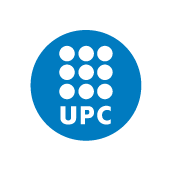Abstract
A general framework for microarray data classification is proposed in this paper. It produces precise and reliable classifiers through a two-step approach. At first, the original feature set is enhanced by a new set of features called metagenes. These new features are obtained through a hierarchical clustering process on the original data. Two different metagene generation rules have been analyzed, called Treelets clustering and Euclidean clustering. Metagenes creation is attractive for several reasons: first, they can improve the classification since they broaden the available feature space and capture the common behavior of similar genes reducing the residual measurement noise. Furthermore, by analyzing some of the chosen metagenes for classification with gene set enrichment analysis algorithms, it is shown how metagenes can summarize the behavior of functionally related probe sets. Additionally, metagenes can point out, still undocumented, highly discriminant probe sets numerically related to other probes endowed with prior biological information in order to contribute to the knowledge discovery process.
The second step of the framework is the feature selection which applies the Improved Sequential Floating Forward Selection algorithm (IFFS) to properly choose a subset from the available feature set for classification composed of genes and metagenes. Considering the microarray sample scarcity problem, besides the classical error rate, a reliability measure is introduced to improve the feature selection process. Different scoring schemes are studied to choose the best one using both error rate and reliability. The Linear Discriminant Analysis classifier (LDA) has been used throughout this work, due to its good characteristics, but the proposed framework can be used with almost any classifier. The potential of the proposed framework has been evaluated analyzing all the publicly available datasets offered by the Micro Array Quality Control Study, phase II (MAQC). The comparative results showed that the proposed framework can compete with a wide variety of state of the art alternatives and it can obtain the best mean performance if a particular setup is chosen. A Monte Carlo simulation confirmed that the proposed framework obtains stable and repeatable results.

